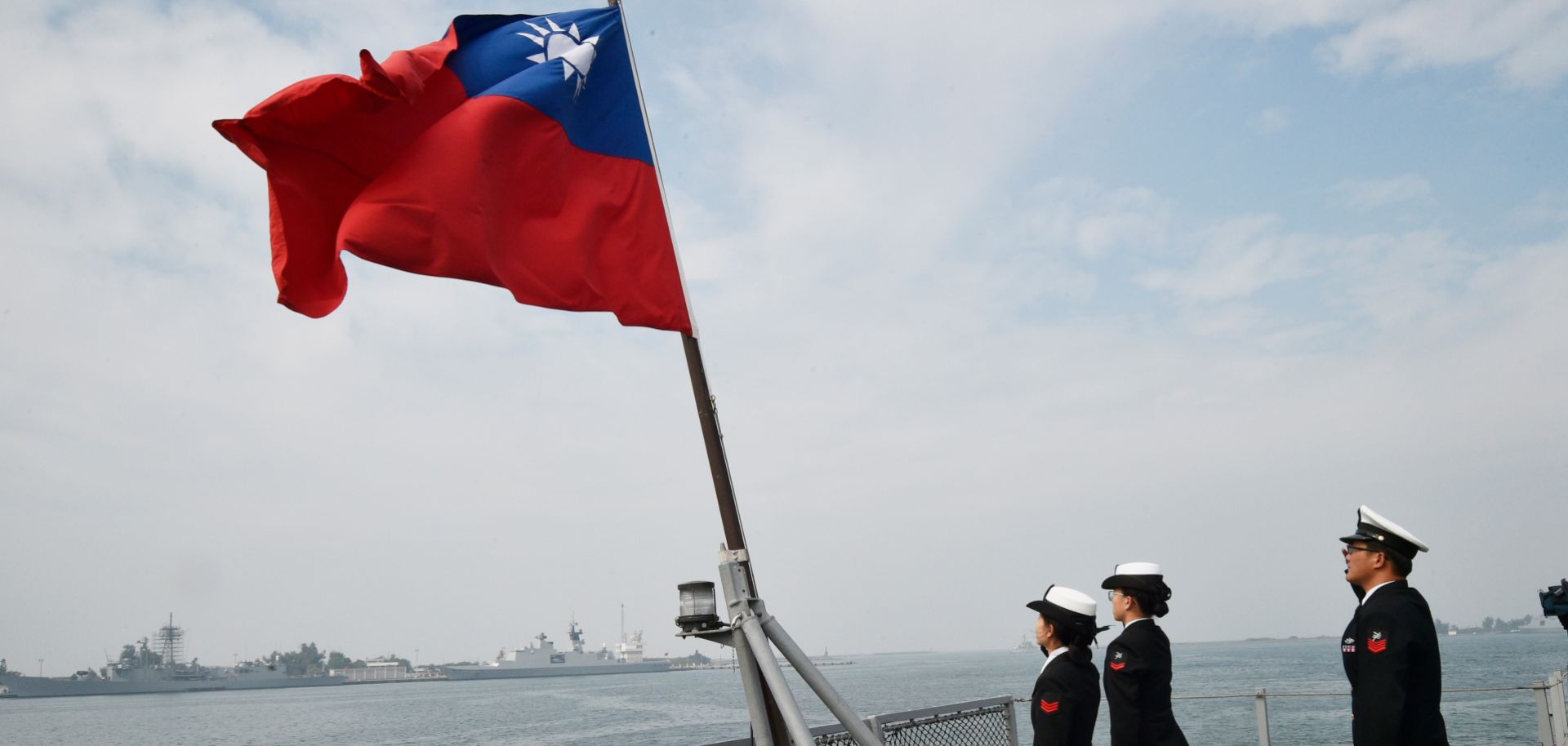ASSESSMENTS
Taiwan Is Thrust Into an Unwanted Spotlight
Feb 7, 2018 | 09:00 GMT

Taiwanese sailors salute the island's flag on the Panshih supply ship after taking part in annual drills at the Tsoying naval base in Kaohsiung on Jan. 31, 2018. Taiwanese troops staged live-fire exercises the day before on Jan. 30 to simulate fending off an attempted invasion. The island's main threat, China, has stepped up pressure on President Tsai Ing-Wen.
(MANDY CHENG/AFP/Getty Images)
Highlights
- The administration of U.S. President Donald Trump is preparing to challenge the status quo in cross-strait diplomacy by increasing official contact with Taipei.
- China will closely watch how far the United States is willing to challenge the "One China" narrative amid current congressional efforts to increase U.S. support for Taiwan.
- Beijing has resorted to military threats and diplomatic isolation to deter Taipei from seeking greater independence, but those moves have encouraged Taiwan to seek outside assistance to break the siege.
Subscribe Now
SubscribeAlready have an account?
